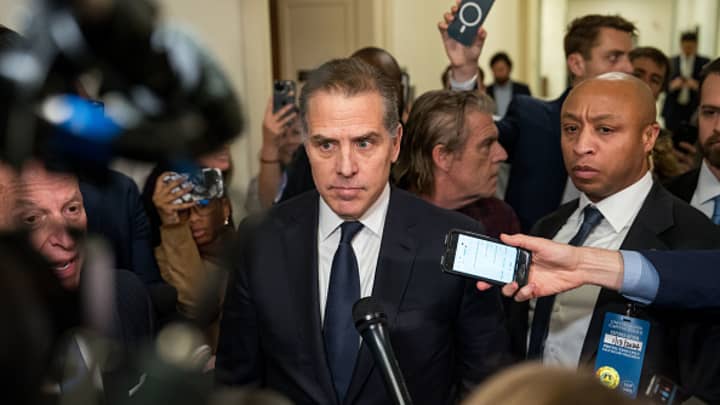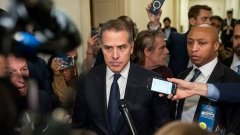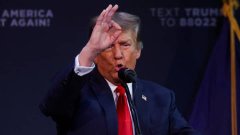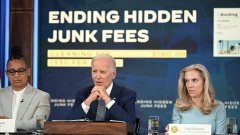
Hunter Biden insisted on knowing the identities of who was buying his art when he began selling his work, an "unusual" directive that was later retracted, his gallery director told House investigators, according to a transcript of the interview reviewed by NBC News.
Hunter Biden was the only artist represented by George Bergès to make this demand, Bergès testified to the House Oversight and Judiciary committees before the stipulation was rolled back in September 2021 after months of public scrutiny. The gallery director's testimony came as part of House Republicans inquiry into President Joe Biden.
Bergès said that there was never any conversation with his buyers about political favors from the president or White House.
More from NBC News
The timeline for the shift raises questions about the Biden White House's ethics safeguards surrounding the sales, which had attracted the attention of art world insiders and good governance experts. It also counters statements by the White House that Hunter Biden does not know the identity of his collectors.
According to Bergès, he was "surprised" by during the summer of 2021 claiming that "White House officials [had] helped craft an agreement" that would create a firewall between Hunter Biden and his buyers, having never spoken to the White House.
At the time, Biden's then-press secretary a "system" that would allow Hunter Biden to sell his work "within reasonable safeguards," reporters, "He will not know, we will not know who purchases his art." The press secretary later that it was not the White House itself that helped create the arrangement.
The White House did not immediately respond to a request for comment.
The interview with Bergès raises new questions about Hunter Biden's art sales as a potential vehicle for the president's son to pay off debts owed to Kevin Morris, a Hollywood attorney. NBC News that Morris began advising Hunter in 2020 before arranging to pay some $2 million in outstanding tax obligations to the IRS on his behalf.
Describing the deal with Morris, Bergès said Hunter would have had to discuss the terms of the sale with his friend before the deal was made. "I think they had an arrangement … he had to have known that he was the buyer because normally the gallery would then write a check for the artist commission but I didn't," Bergès told investigators.
After the agreement was revised, Bergès said there would have been nothing that prevented a buyer from informing Hunter Biden that they had purchased a piece.
The gallery director said he no longer represents Hunter but that they remain close and talk several times a week, with Bergès at one point describing him as "one of my best friends."
Morris, who purchased $875,000 worth of Hunter's art through a business entity in January 2023, paid the gallery director a 40% commission while planning to resolve the balance with Hunter directly, Bergès testified.
He described Morris as Hunter Biden's largest collector.
Bergès told Congress that he did not know if the gallery had provided Hunter Biden with the tax documentation to reflect the $525,000 payment from Morris. He also recalled seeing in Morris's home a piece of art that the gallery director had not sold, indicating that Morris had obtained it elsewhere, perhaps from Hunter directly.
In a letter to Oversight Chair Rep. James Comer, Morris' attorney last week said Morris had not decided how to pay for Hunter Biden's artwork. He is still considering either a direct payment or a write-down of the loans, and that will depend on his tax advisors' advice, according to a copy .
Hunter Biden last week pleaded not guilty to nine tax-related charges, including three felony counts, related to his business dealings between 2016 and 2020.
Bergès said another buyer known to Hunter Biden was Elizabeth Hirsh Naftali, a prominent Democratic donor who received a White House last year. She is the great aunt of 4-year-old Abigail Eden, the first American hostage freed by Hamas after Oct. 7 in a prisoner exchange.
Though Bergès was introduced and began working to sell Hunter's artwork to Hirsh Naftali in 2019, it was not until the weeks after Joe Biden was inaugurated that she made her first purchase in February 2021. In December 2022, Hirsh Naftali purchased a second piece of Hunter Biden's artwork after attending one of his art exhibitions, buying a total of $94,000 worth of his art.
In a letter to Congress last year, Hirsh Naftali's attorney said she did "nothing wrong" and that her White House appointment to the U.S. Commission for the Preservation of America's Heritage Abroad was not connected to her purchase of the artwork and came at then-House Speaker Nancy Pelosi's recommendation.
Bergès said that Hunter Biden learned of her identity through press reports.
— Ryan Nobles contributed to this report.




